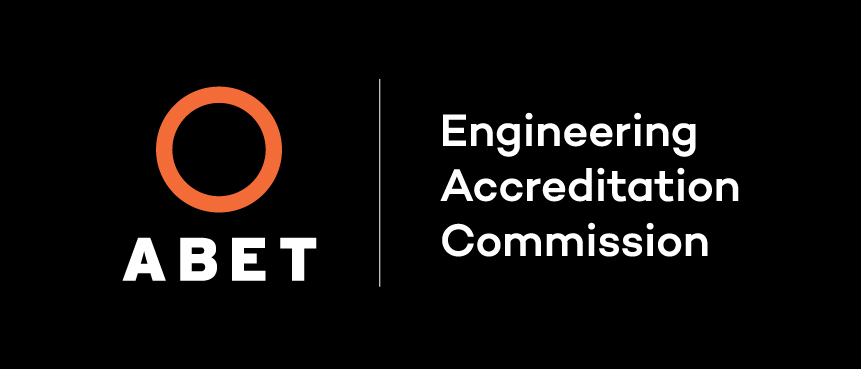
ABET Accreditation
 The Bachelor of Science in Biomedical Engineering program is accredited by the Engineering Accreditation Commission of ABET, https://www.abet.org, under the General Criteria and the Bioengineering and Biomedical and Similarly Named Engineering Programs Program Criteria.
The Bachelor of Science in Biomedical Engineering program is accredited by the Engineering Accreditation Commission of ABET, https://www.abet.org, under the General Criteria and the Bioengineering and Biomedical and Similarly Named Engineering Programs Program Criteria.
Clemson University's ABET Accredited Programs Enrollment and Graduation Data.
Program Educational Objectives
Graduates of our undergraduate program are expected three to five years out to:
- Pursue successful technical or professional careers.
- Cultivate ongoing learning to maintain current knowledge in a world that is constantly evolving.
Student Learning Outcomes
The Biomedical Engineering B.S. program at Clemson University has adopted the ABET Student Outcomes as specified in Criterion 3 for Bioengineering and Biomedical Engineering or similarly named programs as our Student Outcomes. The Clemson Bioengineering Student Outcomes require that graduates receiving the B.S. in Bioengineering have:
1. an ability to identify, formulate, and solve complex engineering problems by applying principles of engineering, science, and mathematics.
2. an ability to apply engineering design to produce solutions that meet specified needs with consideration of public health, safety, and welfare, as well as global, cultural, social, environmental, and economic factors.
3. an ability to communicate effectively with a range of audiences.
4. an ability to recognize ethical and professional responsibilities in engineering situations and make informed judgments, which must consider the impact of engineering solutions in global, economic, environmental and societal contexts.
5. an ability to function effectively on a team whose members together provide leadership, create a collaborative and inclusive environment, establish goals, plan tasks, and meet objectives.
6. an ability to develop and conduct appropriate experimentation, analyze and interpret data, and use engineering judgment to draw conclusions.
7. an ability to acquire and apply new knowledge as needed, using appropriate learning strategies.
Additionally, our program prepares our graduates with experience in:
(a) applying principles of engineering, biology, human physiology, chemistry, calculus-based physics, mathematics (through differential equations) and statistics.
(b) solving bio/biomedical engineering problems, including those associated with the interaction between living and non-living systems.
(c) analyzing, modeling, designing, and realizing bio/biomedical engineering devices, systems, components, or processes.
(d) making measurements on and interpreting data from living systems.
